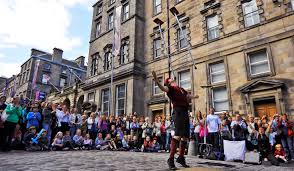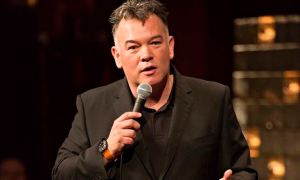Tagged: fringefest

Public Cynicism Cloaks Comedians Mental Health
In May of this year, award-winning comedian and writer Stewart Lee was halfway through his palpable sketch about “wee” (he makes it succinctly clear he shall not be using any other derivatives) in Vicar St, Dublin, when a mawkish audience member grasped feebly at a moment of fame with an ill-timed, poorly construed, unfunny funny.
Being the veteran that he is however, Stew launched on a lambasting, semi-pseudo nervous breakdown about the lack of appreciation audience members often have for the comedic art, the cost of which has quite literally been life for some comedians in the past.
Funny as it may have been from an artist that relishes in setting his crowds ill at ease, this rendition had a speculative air of sincerity in what was being said. There is a lack of appreciation for how hard it can be to write material and often the people who ultimately decide whether or not you are funny, have little or no point of reference.
The Edinburgh Fringe Festival, which begins this weekend, has always been lauded over by comedians. Seemingly, if you can get Edinburgh to laugh, you are destined for bigger and better things. Such is the exhaustive pressure put on performances, that the festivals’ committee have this year decided to offer help to their comics.
The Sick of the Fringe initiative has gathered doctors and scientists from across the world to help comics cope with the stress brought about by performing and also to analyse the effects on human conditioning that comedic crowds can have. It will also encourage comedians to openly discuss issues with their peers.
Performers, such as drag star Le Gateau Chocolat, have been very vocal in the past about how their onstage mannerisms often cloak their personal battles with depression. Sadly, it is an unsettling reality that continues to rear it’s head throughout the decades. In the 60’s, funnyman Tony Hancock took his own life. U.S writer Drake Sather fell victim to the same fate in 2004 and tributes still pour forth for the late, great Robin Williams.
Nothing can be done about the hyper-critical nature that many post-modern platforms for the broadening of culture have brought with them and it would be unfair to single out one. In a world where everything from a music album to a spatula is given a review, who is to say what is right and wrong?
It has brought about a cynical air of one upmanship among comedians in a once innocuous profession of inner circles and friends. Many have turned on one another, in an almost political ploy, to win over the majority crowd. Crowds, often with no insight into a comedic performance, that turn up at random to events whereby great acts are thrown by the wayside by revellers who cherish the opportunity to watch somebody crash and burn.
It is then perhaps, high time that bigger events such as the Edinburgh Fringe festival began support outlets for the people who make the event the success it is. Last year marked the first notable emphasis on mental health at the festival, with acts including Duncan Macmillan’s Every Brilliant Thing play which dealt with life and depression.
On a grander scale, much is still to do. Comedian Tom Allen raised the issue during the week regarding the “unique level of exhaustion and competition” events such as Edinburgh bring about. For many, a comedians stress levels and the mere thought that it may be a source of inner depression is still, excuse the pun, a laughing matter.
There could be nothing less amusing. As the protagonist of our opening paragraph likes to remind his audiences “it is extremely hard to write a joke”. As long as facts like this continue to elicit a contemptible smirk in response, the comedic art form will remain the jester of the culture world. Comedy sketches will continue to be labelled ‘endearing’ rather than ‘ingenious’ and comedians shall remain the floundering buffoon, puppeteered at our behest rather than respected for their work.
